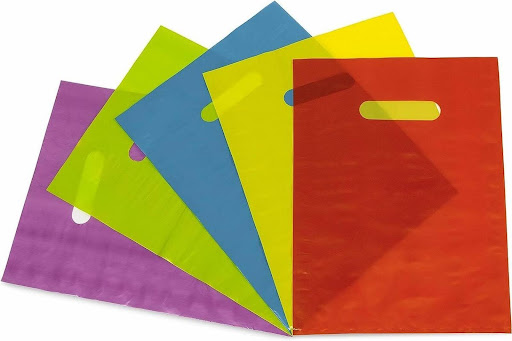
Plastic bags have long been a staple of convenience, but their environmental impact is undeniable. Discover sustainable alternatives that maintain practicality.
While cheap and convenient, plastic bags have become a significant contributor to global pollution. Approximately 5 trillion plastic bags are used worldwide yearly, with only a tiny fraction being recycled. These numbers highlight an urgent need to explore eco-friendly plastic bag options that balance usability and environmental responsibility.
This article delves into innovative, sustainable alternatives to traditional plastic bags, examining their benefits, practical use cases, and how they contribute to a greener planet. Whether you’re a business considering custom plastic bags or a consumer aiming to reduce waste, these eco-friendly solutions are worth exploring.
Biodegradable Plastic Bags: Breaking Down Faster
Biodegradable plastic bags are designed to decompose more quickly than traditional plastic bags, reducing their long-term environmental impact.
These bags are made from plant-based materials like cornstarch or polylactic acid (PLA). Unlike regular plastic bags, which can take hundreds of years to degrade, biodegradable bags break down within a few months to years under the right conditions. However, they require specific industrial composting environments to decompose fully.
Why Choose Biodegradable Bags?
- Reduced environmental footprint: These bags emit fewer greenhouse gases during production.
- Customisable: Businesses can opt for custom plastic bags made from biodegradable materials to showcase their commitment to sustainability.
- Challenges: Their effectiveness depends on proper disposal and may only partially degrade in landfills.
When used correctly, biodegradable bags provide a practical option for businesses and individuals seeking sustainable solutions.
Compostable Bags: Turning Waste into Soil
Compostable bags go further than biodegradable bags by breaking into organic matter that enriches the soil.
Compostable bags are made from natural materials like starch, cellulose, or biopolymers, which are perfect for managing organic waste. When disposed of in a composting system, they leave no toxic residue, making them an excellent alternative for eco-conscious consumers.
Benefits of Compostable Bags
- Soil enrichment: Unlike biodegradable bags, compostable options contribute to soil health.
- Versatility: These bags can be used for groceries, food storage, or even as liners for organic waste bins.
- Brand appeal: Companies using compostable custom plastic bags often attract environmentally conscious customers.
It’s important to note that compostable bags should not be mixed with regular plastic waste, as improper disposal may limit their effectiveness.
Reusable Cloth Bags: A Durable Alternative
Cloth bags are one of the most popular eco-friendly alternatives, combining practicality with long-term usability.
These bags are made of durable cotton, jute, or canvas fabrics. They come in various sizes and can be customised for personal or business purposes, making them an excellent option for replacing single-use plastic bags.
Advantages of Cloth Bags
- Durability: Unlike single-use bags, cloth bags can last for years.
- Eco-friendly production: Many cloth bags are made from organic or recycled fabrics.
- Customisation: Businesses can create custom plastic-like bags in cloth form, branded with logos or designs.
While cloth bags require more resources to produce initially, their reusability offsets the environmental cost over time. To maximise their sustainability, opt for bags made from recycled or organic materials.
Paper Bags: A Classic, Recyclable Option
For decades, paper bags have been a trusted alternative to plastic bags. Lightweight, sturdy, and recyclable, they are widely used in retail and grocery stores.
Paper bags are made from sustainable resources such as wood pulp and degrade naturally. They are also easily recyclable. They are particularly suitable for dry goods but may need to be more durable for carrying heavy or wet items.
Why Paper Bags Work
- Renewable resource: Paper is biodegradable and comes from sustainably managed forests.
- Customisable branding: Businesses can design stylish, branded paper custom plastic bags.
- Recyclability: Paper bags can be recycled up to seven times before the fibres degrade.
However, paper bag production requires significant energy and water. To offset this, look for bags certified by organisations like the Forest Stewardship Council (FSC).
Recycled Plastic Bags: Giving Waste a Second Life
Recycled plastic bags repurpose existing plastic waste into new, usable bags, reducing the demand for virgin plastic.
These bags are often made from post-consumer waste, such as old plastic bottles or discarded plastic bags. Manufacturers can create durable and cost-effective products by recycling materials while reducing overall plastic waste.
Key Features of Recycled Plastic Bags
- Eco-friendly: They reduce waste in landfills and oceans.
- Durable: Often stronger than traditional single-use plastic bags.
- Business value: Custom plastic bags made from recycled materials showcase environmental responsibility.
Recycled plastic bags are not entirely free from environmental concerns, but they are a step in the right direction for reducing plastic’s ecological impact.
Edible Bags: A Revolutionary Innovation
While still a niche product, edible bags represent the cutting edge of eco-friendly innovation. Made from natural, food-grade ingredients like seaweed or potato starch, they are safe for consumption.
Originally designed to tackle marine pollution, edible bags dissolve in water without leaving harmful residues. Their innovative approach could revolutionise the way we think about packaging.
Pros and Cons of Edible Bags
- Eco-friendly: These bags eliminate plastic waste.
- Novelty appeal: They provide a unique selling point for eco-conscious brands.
- Limitations: Higher production costs and limited durability restrict widespread adoption.
As technology advances, edible bags may become viable for replacing traditional plastic bags in specific sectors.
Final Thoughts
Transitioning to eco-friendly plastic bag options is crucial for reducing pollution and conserving resources. Whether you choose biodegradable, compostable, or recycled alternatives, each option offers unique benefits that cater to different needs. For businesses, investing in custom plastic bags made from sustainable materials reduces environmental impact and strengthens brand reputation.
We can collectively move toward a more sustainable future by adopting these innovative solutions. Choose wisely, and let’s leave a cleaner planet for future generations.